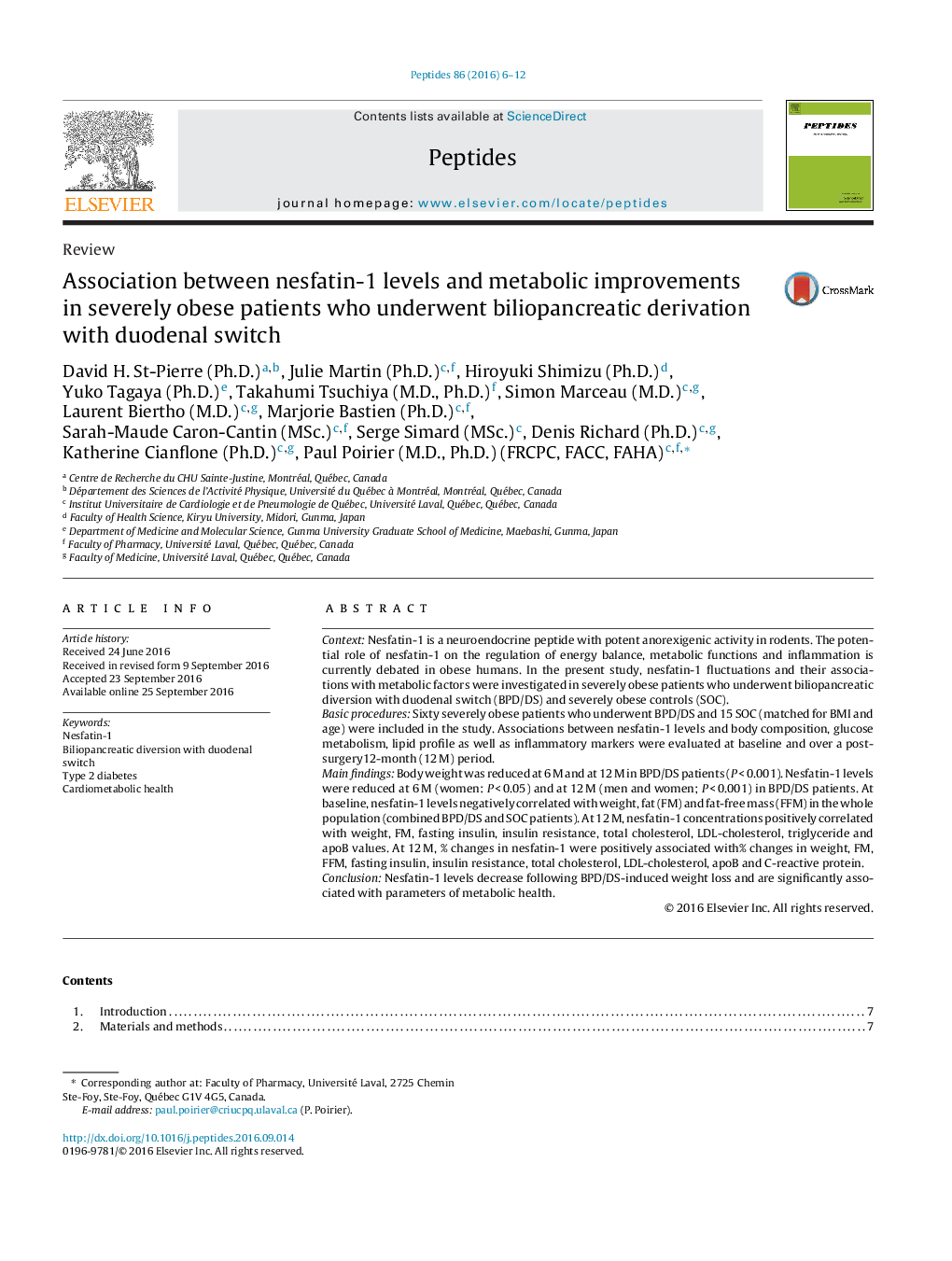| Article ID | Journal | Published Year | Pages | File Type |
|---|---|---|---|---|
| 5514727 | Peptides | 2016 | 7 Pages |
â¢Nesfatin-1 could influence energy balance regulation.â¢Nesfatin-1 levels are reduced after 12 months in severely obese patients undergoing biliopancreatic derivation with duodenal switch.â¢Nesfatin-1 levels are negatively correlated with weight, fat mass and fat-free mass at baseline.â¢Nesfatin-1 levels are positively associated with BMI, Weight, fat mass, fasting insulin, cholesterol and triglycerides at 12 months.
ContextNesfatin-1 is a neuroendocrine peptide with potent anorexigenic activity in rodents. The potential role of nesfatin-1 on the regulation of energy balance, metabolic functions and inflammation is currently debated in obese humans. In the present study, nesfatin-1 fluctuations and their associations with metabolic factors were investigated in severely obese patients who underwent biliopancreatic diversion with duodenal switch (BPD/DS) and severely obese controls (SOC).Basic proceduresSixty severely obese patients who underwent BPD/DS and 15 SOC (matched for BMI and age) were included in the study. Associations between nesfatin-1 levels and body composition, glucose metabolism, lipid profile as well as inflammatory markers were evaluated at baseline and over a post-surgery12-month (12Â M) period.Main findingsBody weight was reduced at 6Â M and at 12Â M in BPD/DS patients (PÂ <Â 0.001). Nesfatin-1 levels were reduced at 6Â M (women: PÂ <Â 0.05) and at 12Â M (men and women; PÂ <Â 0.001) in BPD/DS patients. At baseline, nesfatin-1 levels negatively correlated with weight, fat (FM) and fat-free mass (FFM) in the whole population (combined BPD/DS and SOC patients). At 12Â M, nesfatin-1 concentrations positively correlated with weight, FM, fasting insulin, insulin resistance, total cholesterol, LDL-cholesterol, triglyceride and apoB values. At 12Â M, % changes in nesfatin-1 were positively associated with% changes in weight, FM, FFM, fasting insulin, insulin resistance, total cholesterol, LDL-cholesterol, apoB and C-reactive protein.ConclusionNesfatin-1 levels decrease following BPD/DS-induced weight loss and are significantly associated with parameters of metabolic health.
